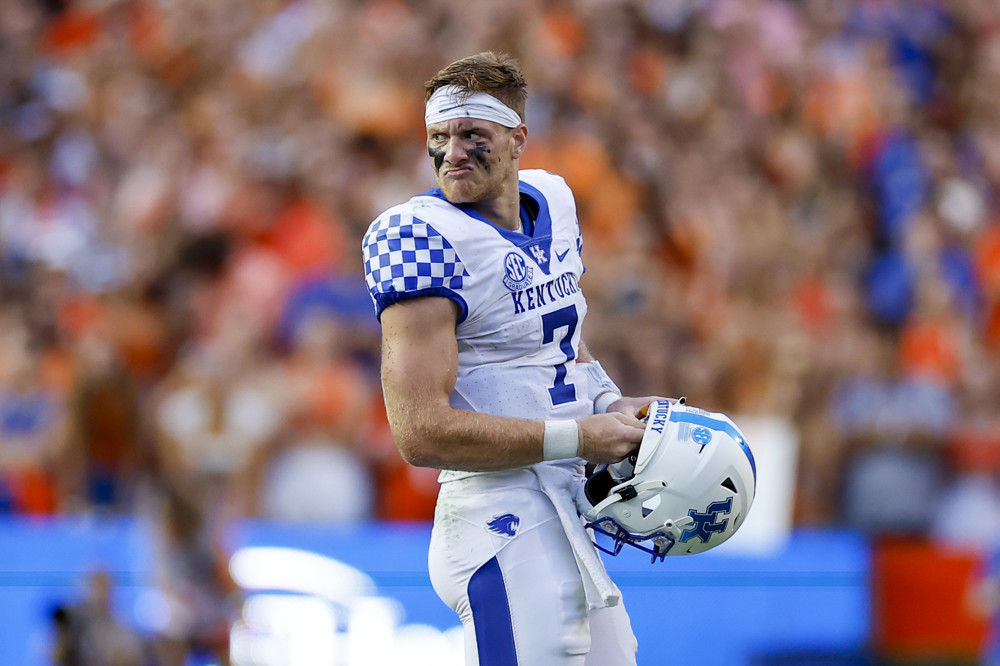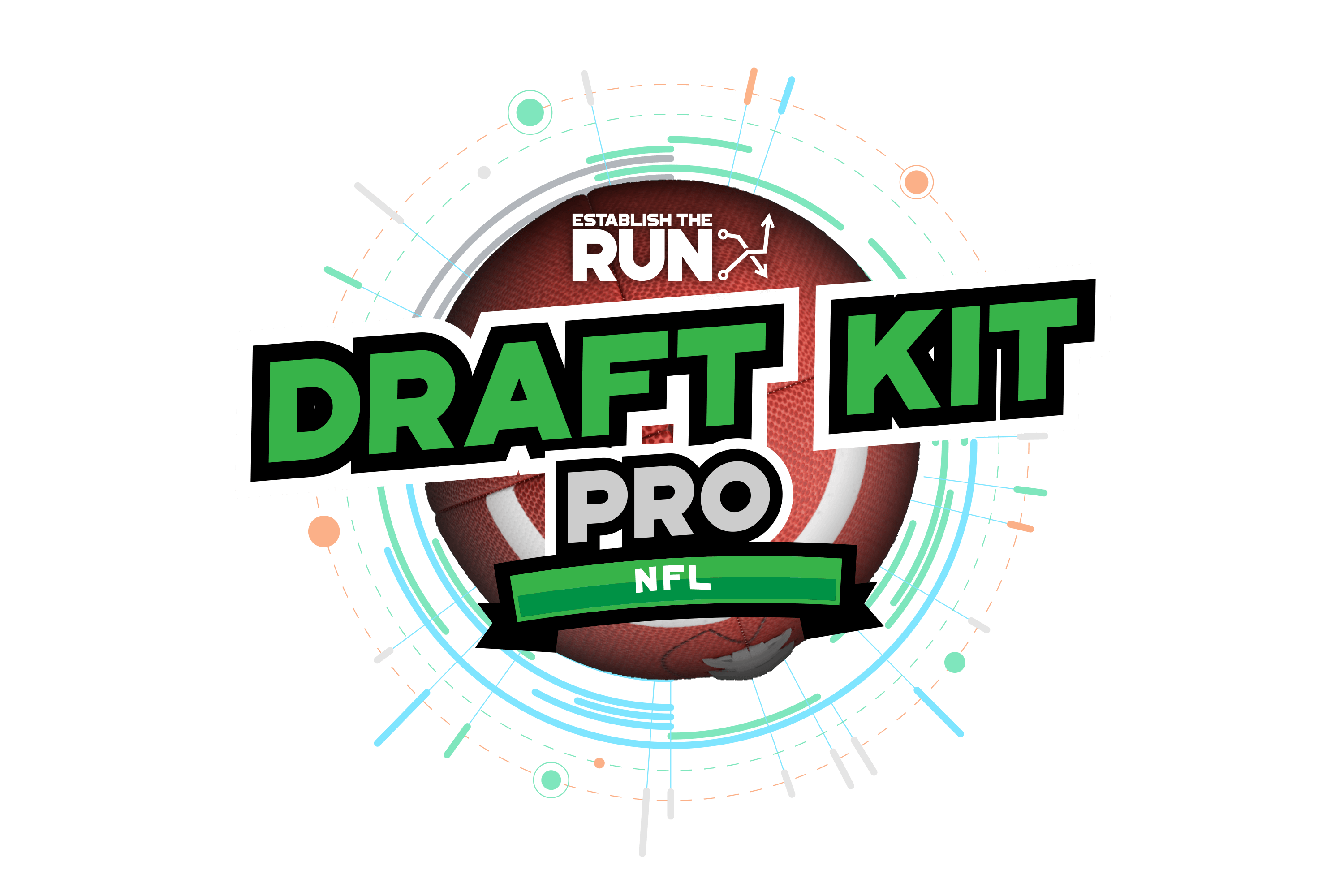Once viewed as degenerate behavior, gambling on the NFL Draft has now become fairly mainstream with major sports media outlets even reporting on odds movement in the days leading up to the event. One manager at a sportsbook told me their handle on the draft “has just about tripled” over the past five years. That same person also estimated the amount of money they book on the draft has increased about 10 times since then. Circa Sports’ Director of Operations Jeffrey Benson has noticed a similar phenomenon, noting their yearly draft handle has “steadily increased” since Circa opened shop in 2019. He also noticed the popularity of draft betting jumped significantly starting with the 2020 NFL Draft during COVID-19.
The NFL Draft has garnered a reputation for being an easy event to win money on since it’s purely information-based. In other words, almost anyone can profit from the draft if they stay on top of the latest news and rumors and act accordingly. Adam Pullen, assistant director of trading at Caesars Sportsbook, told ESPN’s David Purdum, “It’s not if [the book is] going to win or lose. It’s how much you are going to lose.”
For years, the draft has been perhaps the best day of the year for sharps — and there’s no better example than last year when Travon Walker came out of nowhere (he opened around +3000 on BetMGM) to be the first overall pick. Just a few months later, sharp bettors cashed in again when Paolo Banchero went No. 1 overall in the NBA Draft after being +1600 five days prior (and roughly +250 the night before). Historically viewed as a small betting event even by many within the gambling industry, sharp bettors were cashing in almost unbelievable amounts. One New Jersey bettor who wished to remain anonymous told me he profited six figures on the 2022 NFL Draft.
The sportsbooks had to take action. They were used to losing on drafts, but now NFL and NBA Draft betting was more popular than ever. Walker and Banchero (and Juraj Slafkovsky over Shane Wright for the NHL fans out there) were further confirmation that the books would get beaten to the punch on major draft intel. Something had to change.
The casual bettor may not notice any changes to the draft betting experience this year. But for those who depend on gambling income for a living, getting down real money on the draft has become a huge chore. The New Jersey bettor referenced earlier who profited more than $100,000 on the draft in 2022 said he hopes to eclipse the $20,000 mark this year.
High-stakes N.J. bettor Jeremy, who goes by @JCProps17 on Twitter, predicted he will only have 25-30% in risk as he had last year simply because the sportsbooks won’t allow him to wager as much. Much of this is because many brick-and-mortar sportsbook locations have stopped offering draft props altogether. Jeremy estimated that nearly half of his draft volume last year was from bets physically placed at an in-person kiosk, which is no longer an option. According to pro sports bettor Hitman (@Hitman428 on Twitter), the sportsbook manager at both DraftKings and FanDuel in Atlantic City decided after the NBA Draft last summer that their locations would no longer offer draft props moving forward. Those kiosks were taking $500 limits last year with re-bet allowed; it’s easy to imagine how bettors with large bankrolls could have made a killing in spots where they had conviction. Per Hitman, last year it was possible to get five figures down on a player to go in the first round and the line would only move around 60 cents total. This year, it takes $1,000 to $2,000 on an app to move a line the same amount.
The lack of kiosk availability is the primary reason pros can’t get down as much this year, but limits on betting apps are down industry-wide too. Last year, the DraftKings Sportsbook app was taking $2,000 to $3,000 on clean accounts — i.e., accounts without a history of placing sharp bets and/or winning — depending on the market. This year, they are only taking $500 to $1,000. For your average bettor, that isn’t going to change much, but it’s a significant difference for pros trying to bet as much as possible. FanDuel limits are also slightly lower this year, and all books are moving extremely hard on action.
This lack of liquidity compared to past seasons has caused some oddities in the market. Perhaps the best example of this came on Tuesday morning when Will Levis went from approximately 40/1 to 4/1 to be the No. 1 overall pick after Reddit user SaleAgreeable2834 posted that the Kentucky product was telling friends and family that he’d been told Carolina was drafting him. This happened in a matter of hours — and it happened despite Caesars Sportsbook (which, to their credit, is generally taking bigger bets, especially on stuff like the No. 1 overall pick) reporting “no huge bets” on Levis to go first overall. This immediately caused a media firestorm with numerous outlets actually writing stories on the Reddit post and corresponding odds movement, but all it really shows is how illiquid draft betting is this year if a bunch of small bets from (presumably) non-sharp accounts can cause such a rapid shift. It’s almost paradoxical how coverage of draft odds is at an all-time high while the meaning behind those numbers is lower than it has been in previous years.
The decreased liquidity this year in what has always been a smaller market has caused sharps to change their approach. Now only able to get in a few bets before getting harshly limited, some pros waited until later in the process to start betting because limits were so low (sometimes as low as $25 at major books) early in the process and it wasn’t worth burning accounts at such low stakes. Plus, a lot of the best opportunities come later in the process as the draft picture crystallizes in the days leading up to the event. The combination of superior information and increased liquidity later in the process led to some bettors — Hitman and Jeremy included — waiting until later than usual to start grinding draft props. This change could benefit lower-stakes rec bettors in future years, as there won’t be as many sharks in the water hammering lines into place early in the process.
Betting the NFL draft this year on clean accounts feels like the Elaine Benes’ sponge worthy episode. You only get about 5 decent sized bets until limited severely, pick carefully which bets are draft worthy. https://t.co/MSqeP42q27
— Hitman (@Hitman428) April 18, 2023
This is just another example demonstrating that edges dissipate over time. It’s slightly different than games like poker and DFS where the edge disappeared from an ROI perspective (i.e., the player pool got better and it became much harder to win). For draft betting, it’s still relatively straightforward to win, but volume-wise it’s difficult to capitalize because the market is so illiquid. Walker and Banchero sped the process up — hence why DK/FD stopped offering in-person draft props in New Jersey — but it’s also a function of so many in the gambling space spreading the word about how easy it is to make money on the draft.
Unfortunately for high-stakes bettors, things are unlikely to revert back to the way they were last year. There’s simply no reason for sportsbooks to allow bettors to bet a ton of money on drafts when they know the house is at a disadvantage. Many in the space view peer-to-peer gambling as the next step in legal betting in the United States, but that may not work for drafts because the sharps are frequently all on the same side. The NFL Draft has never been truly liquid like we see for major individual game markets, but even with that, there has been a step back from where it was in that regard.
With NFL Draft betting being more popular than ever — and coverage of draft odds even making its way into the mainstream news flow — it’s worth learning about how the market works on a macro level. Understanding the nuances of the market you’re betting into is a critical skill in gambling, and the average bettor may not realize how much things have changed this year if they aren’t trying to bet at high stakes. Now, with that out of the way — bring on the draft.



